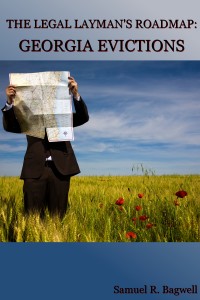 By far, one of the most popular areas where we get questions and confusion is for Evictions. We even went so far as to make a special page on our firm’s website to go over everything.
By far, one of the most popular areas where we get questions and confusion is for Evictions. We even went so far as to make a special page on our firm’s website to go over everything.
Basically, we find that a lot of landlords have only one or two properties as investments. These guys don’t have eviction departments, and may not have much experience with bad tenants. They may not know it, but these landlords need to address only two real issues: 1. Can they get the bad tenant out, and get a good tenant in? 2. Can they get the money that they’re owed from the current bad tenant?
The answer to number 1 is almost always “yes.” If the tenant hasn’t paid, then you can, pretty much always, get them out. The answer to number 2 is almost always “no.” But why? Shouldn’t the tenant have to pay what they owe? Of course they should. Let’s play this out, though. You file a dispossessory against your tenant, go to court, and win. You get a writ of possession which lets you get your property back, and you get a judgment against the tenant for back rent. What is that judgment? It is a piece of paper saying that the tenant owes you money. That’s it. I have a feeling that most of you already have a piece of paper saying that they owe you money, called a lease. The judgment simply gives you the right to try to collect the debt through garnishment, liens, etc… Most defaulting tenants are broke, don’t own anything, and may not have a steady enough paycheck to garnish. When you take the small possibility that this tenant has anything to get, and combine that with the cost to file the post-judgment interrogatories, garnishments, liens, etc… (assuming you can even find where the tenant is living now), plus the time and opportunity cost of pursuing those legal remedies, it is rarely worth it for the landlord to worry too much about the back rent. While Principle vs Practicality shouldn’t be at odds with each other, with a business such as property investment, that is often the case. You are welcome to pursue the principle so long as you are willing to pay the price, even if there is no likely return on that investment.
What a judgment can do for you, though, is allow you to use unallocated portions of the security deposit toward the back rent, which you are not allowed to do without the judgment.
If you have questions about being a landlord, setting up your business, evicting a tenant, etc…, please let us know, and we’ll try to respond. If you want some free info about all this, take a look at my firm’s link, above.
At some point in the near future, I think we’ll try to have an ebook available with a sort of walk-through for the eviction process. If you’d like to suggest other topics for ebooks, let me know.
 We’ve put together a lot of our basic Landlord consultation information into a handy e-book. We find that a lot of landlords don’t need to hire an attorney for their entire case, but that they simply need a little bit of information or guidance. That’s what this little guide is for.
We’ve put together a lot of our basic Landlord consultation information into a handy e-book. We find that a lot of landlords don’t need to hire an attorney for their entire case, but that they simply need a little bit of information or guidance. That’s what this little guide is for.
